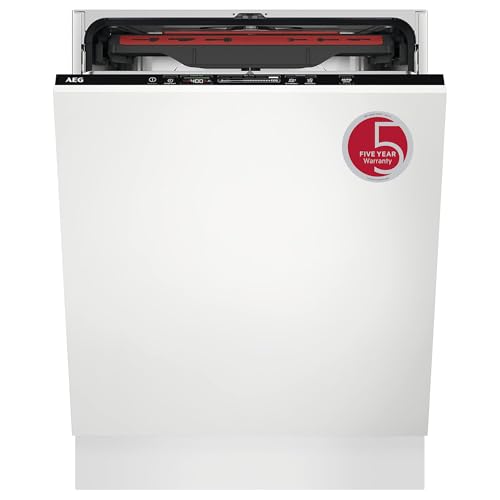




Hard water is a common issue that many households face, and it can have a negative impact on the cleanliness and freshness of your laundry. If you’ve noticed a funky smell coming from your freshly washed clothes, hard water might be the culprit.
Hard water contains high levels of minerals, such as calcium and magnesium. These minerals can build up in your washing machine and on your clothes, leaving behind a residue that can cause odours. When you wash your clothes in hard water, the minerals can also react with the detergent, reducing its effectiveness at removing dirt and odours.
So, what can you do to tackle the problem of odours caused by hard water in your laundry? Firstly, consider investing in a water softener. Water softeners are designed to remove the minerals that cause water hardness, resulting in softer water that is gentler on your clothes and leaves them smelling fresh and clean.
Additionally, using a laundry detergent specifically formulated for hard water can make a big difference. These detergents are designed to work effectively in high mineral content water and can help to eliminate any unpleasant odours.
Does Hard Water Cause Odours in Your Laundry?

Hard water is water that contains high levels of minerals such as calcium and magnesium. While these minerals are not harmful to human health, they can cause a variety of issues, including odours, when it comes to doing laundry.
When you wash your clothes in hard water, the minerals in the water can react with the detergents and fabric softeners, leaving behind a residue on your clothes. This residue can trap dirt and bacteria, leading to unpleasant odours.
How to Tackle the Problem
If you’re dealing with odours in your laundry due to hard water, there are several steps you can take to tackle the problem:
- Use a Water Softener: Installing a water softener in your home can help remove the minerals from your water, reducing the chances of odours in your laundry.
- Adjust Your Detergent: Using a detergent specifically designed for hard water can help remove the mineral residue from your clothes and eliminate odours. Look for detergents that contain water softening agents.
- Pre-Soak Your Clothes: Before washing your clothes, consider pre-soaking them in a vinegar and water solution. Vinegar can help break down the mineral residue on your clothes, reducing odours.
- Wash with Hot Water: Hot water can help dissolve the mineral residue more effectively, so consider washing your clothes in hotter water to eliminate odours.
- Use Odor Eliminators: Consider using odor eliminators or washing additives specifically designed to combat odours in laundry. These products can help neutralize any lingering smells caused by hard water.
By taking these steps, you can effectively tackle odours in your laundry caused by hard water. Remember to regularly clean your washing machine and dryer as well to prevent any buildup of mineral residue and keep your clothes smelling fresh.
Understanding the Effects of Hard Water on Laundry
Hard water, which is water that contains a high concentration of minerals such as calcium and magnesium, can have a negative impact on the laundry process. These minerals can react with the soap or detergent used to wash clothes, resulting in various issues that affect the cleanliness and appearance of clothing.
Residue Build-up: One of the primary effects of hard water on laundry is the build-up of mineral deposits on clothing and linens. When hard water is used for washing, the minerals can combine with soap or detergent to form a residue that clings to fabrics. This residue can make clothes look dull, feel stiff, and even cause them to become discolored over time.
Colour Fading: Hard water can also cause colors to fade more quickly. The minerals in hard water can interact with the dyes in clothing, causing them to break down and fade. This can result in clothes losing their vibrancy and looking dull and worn out.
Stiffness: Another common effect of hard water on laundry is the stiffness of clothes after washing. The mineral deposits left behind by hard water can make fabrics feel rough and stiff. This can be particularly noticeable with towels and bed linens, which can become less absorbent and less comfortable to use.
Odor Problems: Hard water can contribute to unpleasant odors in laundry. The minerals in hard water can create an environment that is conducive to the growth of bacteria and mold, which can cause clothes to develop a musty or mildewy smell. This can be especially problematic for towels and other items that are used frequently and remain damp for longer periods of time.
Less Effective Cleaning: The mineral deposits left by hard water can interfere with the cleaning process, making it more difficult for soap or detergent to effectively remove dirt and stains. This can result in clothes that are not as clean as they could be, even after washing.
To mitigate the effects of hard water on laundry, it is recommended to use a water softener or add a water conditioner to the washing machine. These products can help to reduce the mineral content in the water, which in turn will improve the effectiveness of soap or detergent and prevent residue build-up on clothes. Additionally, using the proper amount of detergent for the hardness of the water and following the manufacturer’s instructions can also help to minimize the impact of hard water on laundry.
By understanding the effects of hard water on laundry and taking the necessary steps to address it, you can ensure that your clothes come out of the wash looking and smelling fresh, and that they maintain their quality and longevity for longer.
Tackling Odours Caused by Hard Water
If you’ve noticed a lingering odour on your laundry even after washing it, hard water could be the culprit. The minerals in hard water can leave behind a residue that can cause unpleasant smells in your clothes. Fortunately, there are steps you can take to tackle this problem.
Use a Water Softener
Investing in a water softener can help eliminate odours caused by hard water. A water softener works by removing the minerals that cause water hardness, such as calcium and magnesium. This will not only improve the smell of your laundry but also extend the lifespan of your washing machine and improve the effectiveness of your laundry detergents.
Choose the Right Detergent
Using the right detergent can make a big difference in eliminating odours caused by hard water. Look for detergents designed specifically for hard water conditions. These detergents are formulated to work effectively in removing mineral build-up and odours. They can also help prevent the formation of soap scum on your clothes.
Use Vinegar or Baking Soda
Vinegar and baking soda are natural cleaning agents that can help neutralize odours caused by hard water. Add a cup of vinegar or baking soda to your laundry during the rinse cycle to remove any lingering smells. These ingredients can also help soften the water, making it easier for your detergent to work effectively.
Regular Cleaning and Maintenance
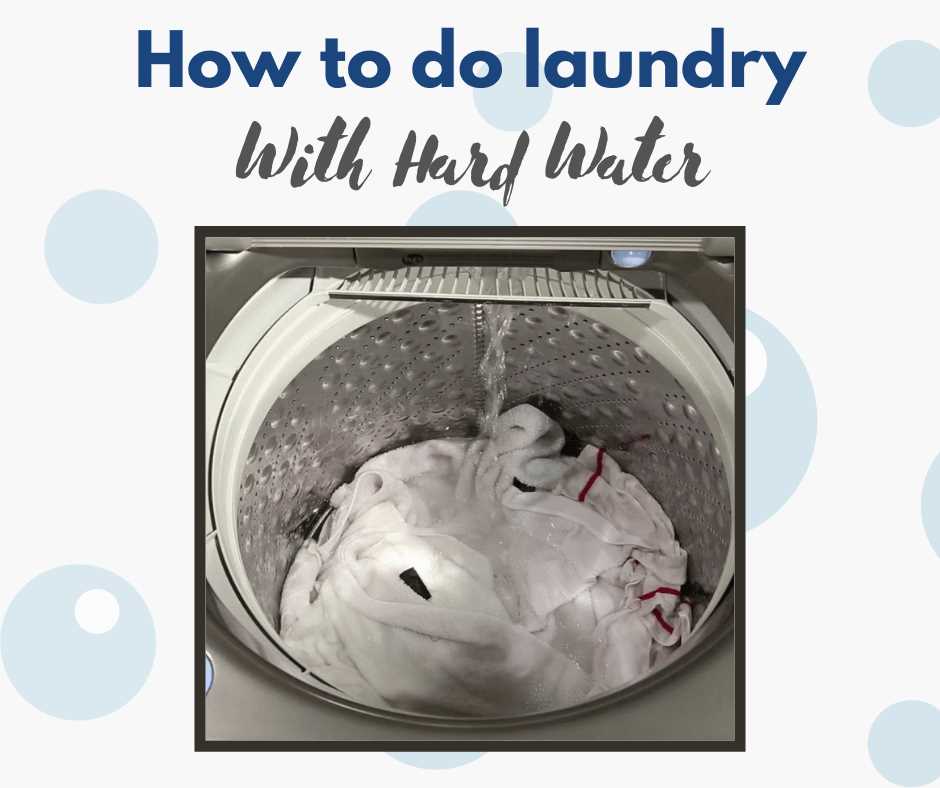
In addition to using a water softener and the right detergent, it’s important to regularly clean and maintain your washing machine. Hard water minerals can build up in your machine over time, leading to odours. Clean your machine regularly, following the manufacturer’s instructions, to remove any mineral deposits and prevent odours from forming.
By following these steps, you can effectively tackle odours caused by hard water and enjoy fresh-smelling laundry every time.
Choosing the Right Detergent for Hard Water
1. Look for detergent specifically designed for hard water
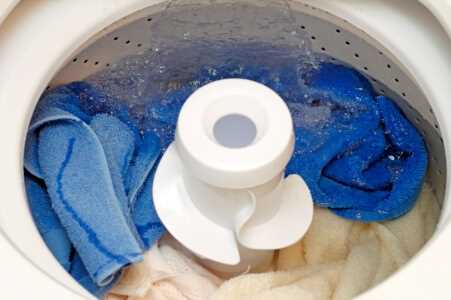
When dealing with hard water and its effects on laundry, it is important to choose a detergent that is specifically formulated to address this issue. These detergents are designed to be effective in hard water conditions and can help to prevent odors and remove mineral buildup from fabrics.
2. Pay attention to the detergent’s water softening properties
Some detergents include ingredients that help to soften hard water, making it easier for the detergent to clean effectively. Look for detergents that contain water softeners such as sodium citrate or sodium carbonate.
3. Consider using a detergent booster or additive
If you find that your regular detergent is not effective in removing odors and stains caused by hard water, you may want to consider using a detergent booster or additive. These products can enhance the cleaning power of your detergent and help to eliminate odors and mineral buildup.
4. Avoid using too much detergent
Using too much detergent can actually make the problem worse. Excess detergent can leave behind residue on your clothes, making them feel stiff, dull, and less absorbent. Follow the recommended dosage on the detergent packaging and avoid overloading the washing machine with too many clothes.
5. Experiment with different brands and formulas
Not all detergents are created equal, and what works well for one person may not work as effectively for another. If you are not satisfied with the performance of one brand or formula, don’t be afraid to try others until you find the one that works best for your specific water hardness level and laundry needs.
6. Consider using a water softener
If you are dealing with severe hard water issues, such as persistent odors and stains, it may be worth investing in a water softener for your home. A water softener can remove the minerals that cause water hardness, resulting in cleaner, softer water for your laundry.
By following these tips, you can choose the right detergent for hard water and effectively tackle the odors and mineral buildup that it can cause on your laundry.
Implementing Effective Laundry Practices
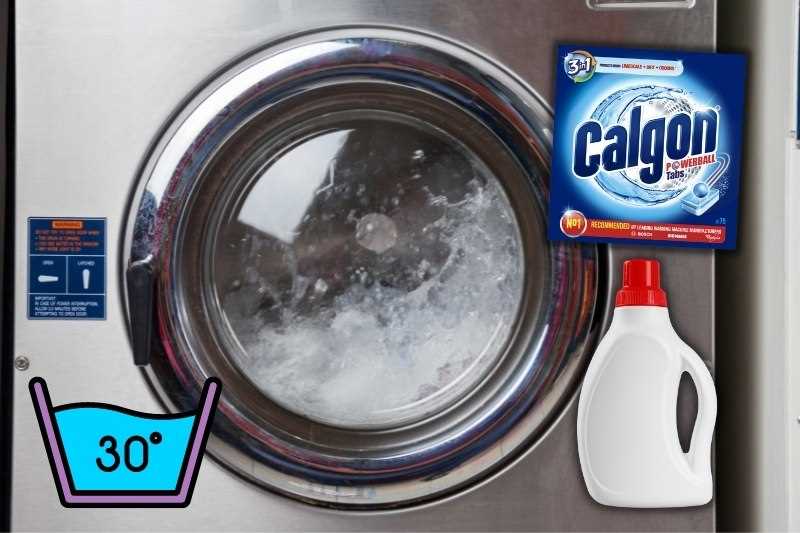
1. Sort your laundry
Before starting any laundry cycle, it’s important to sort your clothes properly. This helps ensure that similar fabrics and colors are washed together, preventing any color bleeding or damage to delicate materials.
2. Pre-treat stains
If you have any stains on your clothes, it’s a good idea to pre-treat them before washing. This can help remove tough stains more effectively. There are various stain-removal products available in the market, or you can use household items like vinegar or baking soda to pre-treat stains.
3. Use the right amount of detergent
Using the right amount of detergent is essential for effective cleaning. Too much detergent can leave residue on your clothes, while too little may not effectively remove dirt and odors. Follow the manufacturer’s instructions and adjust the amount based on the load size and level of dirtiness.
4. Choose the appropriate water temperature
The water temperature you choose can impact the cleanliness of your laundry. Cold water is suitable for most fabrics and colors, while warm water can help remove oily stains and kill bacteria. Hot water is best for whites and heavily soiled items. Check the care labels on your clothes to determine the appropriate water temperature.
5. Consider using a water softener
If you live in an area with hard water, using a water softener can help minimize odors and improve the effectiveness of your laundry detergent. Water softeners remove minerals that can accumulate in your washing machine and on your clothes, leading to odors and dull-looking laundry.
6. Don’t overload the washing machine
Overloading your washing machine can result in poor cleaning and rinsing. Clothes need space to move around for the detergent and water to effectively clean them. Follow the manufacturer’s guidelines for load size, and avoid stuffing too many clothes into one cycle.
7. Properly dry your clothes
Drying your clothes properly can help prevent odors and maintain their quality. If using a dryer, make sure to clean the lint filter regularly and select the appropriate heat settings for your fabrics. If air-drying, choose a well-ventilated area and hang clothes to dry in a way that allows proper air circulation.
8. Clean your washing machine regularly
Maintaining a clean washing machine is essential for effective laundry practices. Over time, detergent residue, fabric fibers, and minerals from hard water can build up in your machine, leading to unpleasant odors and reduced performance. Follow the manufacturer’s instructions for cleaning your specific washing machine model.
9. Consider using natural alternatives
If you prefer using natural alternatives, there are several options available for cleaning and freshening your laundry. Vinegar can act as a fabric softener, baking soda can help remove odors, and lemon juice can brighten whites. Research and test these natural alternatives to find what works best for you.
10. Follow garment care instructions
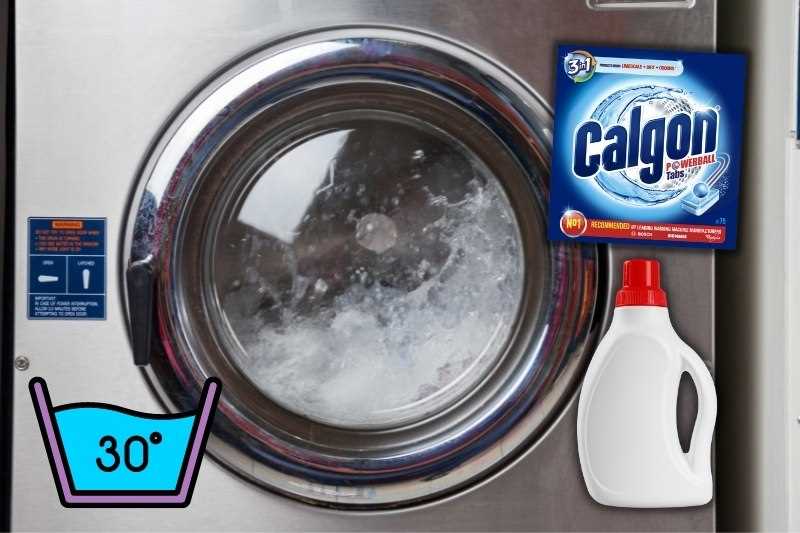
Always check the care labels on your clothes for specific washing instructions. Different fabrics and garments require different care to maintain their quality and prevent damage. Following these instructions will ensure that your laundry practices are effective and safe for your clothes.
Preventing Odours in Hard Water Laundry
Why do odours occur in hard water laundry?

When washing laundry in hard water, minerals such as calcium and magnesium can combine with detergent residue and soil particles. This can create a buildup that causes odours in your clothes.
Steps to prevent odours in hard water laundry

- Use the right amount of detergent: Using too much detergent in hard water can lead to more buildup and odours. Follow the recommended dosage instructions on the detergent packaging.
- Choose the right detergent: Look for detergents specifically designed for hard water. These detergents are formulated to work effectively in high mineral content water and can help prevent odours.
- Pre-treat stains: Address stains promptly before they have a chance to set into the fabric. Use appropriate stain removers or methods to remove the stain before washing.
- Consider using a water softener: Installing a water softener can help reduce the mineral content in your water, preventing the formation of odour-causing buildup in your laundry.
- Wash at the right temperature: Higher temperatures can enhance the cleaning process and help kill bacteria that may cause odours. However, be sure to follow the care instructions on your clothing items to avoid damaging them.
- Don’t overload the washing machine: Overloading the machine can prevent proper agitation and rinsing, which can lead to insufficient removal of detergent residue that contributes to odours.
- Ensure proper drying: Make sure your laundry is completely dry before storing it. Damp or partially dry clothes can develop musty odours over time.
- Clean your washing machine: Regularly clean your washing machine, including the drum and detergent dispenser, to remove any buildup or residue that can transfer to your laundry.
By following these steps, you can effectively prevent odours in your hard water laundry and keep your clothes smelling fresh.
FAQ
Can hard water cause odours in my laundry?
Yes, hard water can cause odours in your laundry. The minerals present in hard water can react with detergents and leave behind a residue that can lead to musty or sour smells in your clothes.
What are some signs that my laundry has been affected by hard water?
If your laundry has a funky smell even after washing, or if the fabric feels rough or stiff, it’s likely that hard water is the culprit.
How can I tackle odours caused by hard water in my laundry?
There are a few steps you can take to tackle the odours caused by hard water. First, consider using a water softener or installing a water softening system. You can also try using a detergent specifically designed for hard water. Adding vinegar or baking soda to your laundry can also help neutralize odours.
Is there a way to prevent odours caused by hard water in my laundry?
While it may not be possible to completely prevent odours caused by hard water, there are a few things you can do to minimize their impact. Regularly cleaning your washing machine, using a higher water temperature, and properly measuring detergent can all help keep odours at bay.
Are there any other effects of hard water on laundry?
Yes, besides causing odours, hard water can also make your laundry appear dull and faded over time. It can also reduce the effectiveness of detergent, leading to less effective cleaning.
What is hard water?
Hard water is water that contains a high concentration of minerals, usually calcium and magnesium. These minerals can cause a variety of problems, including odours in laundry.


